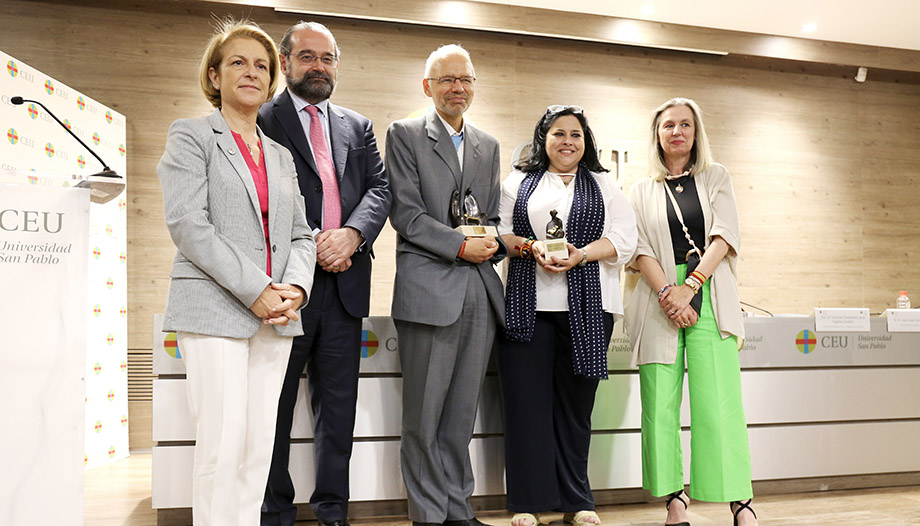Some key points of the reform of the draft bill promoted by the Minister of Equality, Irene Montero, and also signed by the Minister of Health, Carolina Darias, are, in summary, the following, accompanied by some comments based on current laws.
1.- Free way to have an abortion from the age of 16 without parental consent. Minors under 18 will be able to have an abortion in an operating room, but they cannot buy alcohol or tobacco, nor vote (Article 12 of the Spanish Constitution states that "Spaniards are of legal age at 18 years of age").
2.- Promise to eliminate the three days of reflection that have been mandatory up to now, and the provision of information on alternatives and assistance, unless the woman requests it.
3.- Free of charge of the morning-after pill, which can be requested at nearby health centers and pharmacies.
4.- The law will guarantee conscientious objection, regulated in the same way as the law on Euthanasia. Health professionals who refuse to perform an abortion will be included in the registers of objectors.
5.- Groups such as the rescuers who, in a peaceful way, pray and advise women until the last moment, shall be considered a crime. here an article by Javier Segura on the issue).
6.- The current bill does not address assistance or incentives for women who wish to continue with their pregnancy.
7.- "Menstrual health". In numerous centers and public organizations, tampons, sanitary towels, etc., will be distributed free of charge, with the aim of ending "menstrual poverty".
8.- The text is being processed urgently in order to "circumvent" possible delays, for example in the General Council of the Judiciary, according to El Mundo.
9.- A legal debate on the age of majority in Spain is underway. According to The DebatePodemos is gaining ground, law by law, in its goal of advancing the legal age for making important decisions to 16 years, the age at which they propose to set the minimum age for voting".
Immediate reaction of the bishops
"The moral health of a society is demonstrated in its defense of life," said Monsignor Luis Argüello, secretary general and spokesman for the Spanish Episcopal Conference, after learning of the approval of the bill.
As reported by OmnesArgüello described as "bad news" the bill "on sexual and reproductive health and the voluntary interruption of pregnancy" approved by the Spanish government, and stressed that "the defense and protection of life is one of the sources of civilization. One of the red lines that express the moral health of a people".
The Secretary General of the EEC also pointed out that to consider abortion as a "right" is to affirm the "right of the strong over the weak when it comes to eliminating a new and different life that exists in the womb of the mother", and emphasizes that "the advances of science make us affirm, with all strength, that in the womb of a pregnant woman there is a new life that must be welcomed and cared for, for which the mother must be defended". The bishops' spokesman defended the need to offer women "the economic, working and housing conditions... to welcome this new life".
Lifetime Achievement Awards
As mentioned at the beginning, once again this year, the Institute of Family Studies of the CEU San Pablo University, directed by Carmen Fernández de la Cigoña, has distinguished different actions with its 'Awards for Life' and the 'Bárbara Castro. To a mother's heart'.
The president of the Official College of Physicians of Madrid, Manuel Martínez-Sellés, has been awarded the CEU Award "thanks to his tireless work in favor of life". He received the distinction from the President of the San Pablo CEU University Foundation, Alfonso Bullón de Mendoza. Two runners-up prizes were also awarded to Rescatadores san Juan Pablo II and 40 días por la Vida.
Within the framework of the 'Awards for Life', the CEU Award for students' creativity in the defense of Life was also presented to Irene Barajas, a fourth year student of the Double Degree in Pharmacy and Biotechnology, for the development of an emotional video against abortion, which aims to raise awareness in society, especially among young people, that there is no argument superior to the value of human life.
Award 'Bárbara Castro. To a mother's heart' Award
As a result of her desire to form a family, regardless of the barriers she had to overcome in the process of adopting her two children, Anabel Mialdea has received the 'Bárbara Castro. To a mother's heart'.
The award is named after a former journalism student, who fought for and prioritized her daughter's life over her own, and rewards support for motherhood or her experience in difficult situations.
The CEU San Pablo University has recognized the testimony and experience of this woman from Córdoba during the adoption process of her two children: Rafael and Ana, in order to bring them to Spain from Russia. Rafael, who is now 19 years old, was the first to arrive home when he was 1.5 years old. He was born at 1.75 kg, at -20ºC, without an incubator and in precarious conditions.
For her part, Ana, 14 years old, arrived home at the age of 4 and a half. She spent 5 months in an ICU in Russia and was later transferred to a nursery. She has a cleft palate and stunted growth as a result of malnutrition suffered in her first years of life. The woman from Córdoba has commented on how the Russian health services omitted her and her husband all the health problems suffered by the girl, who has been operated on 8 times since she arrived in Spain.
The rector of CEU USP, Rosa Visiedo, recalled that the university maintains a strong commitment to the defense of life and its sacredness, noting that there is no future without human life. She also highlighted the inter-university nature of these awards.









